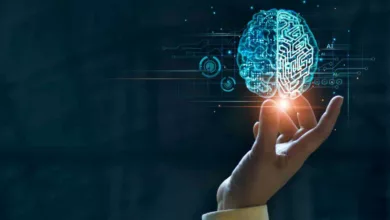Pros and Cons of Artificial Intelligence in Today’s World

Artificial intelligence has penetrated and permeated every facet of society and consumer technology. It has been seen as a scientific advance since the 1950s when it was just a futuristic idea and a fringe concept.
One of the emerging technologies aimed at emulating human reasoning in systems is artificial intelligence. Artificial intelligence can imitate human thought processes and perform tasks similar to ours or other intelligent/sentient beings. Through their ability to ‘think’, they can translate stimulus into response, which plays a vital role in the development and growth of humans.
Its most useful applications are far less visible, such as automating factory production, streamlining business operations, or recommending our next online purchase. Such applications reflect the complexity of the technology as a whole.
But AI’s potential is only just beginning to emerge. It in use across many industries and situations, some of which we detail below.
Both Elon Musk and the late theoretical physicist and cosmologist Stephen Hawking believe artificial intelligence is an existential threat to humans.
As a subject of fascination for philosophers, psychologists, science fiction writers, and futurists alike, artificial intelligence poses the question, what happens when machines surpass the intelligence of their creators? Throughout the history of cinema, AI has been portrayed as an uncontrollable force that can spiral out of humanity’s grasp if we’re not careful.
Pros of Artificial Intelligence
No Room for Errors
Data records are used as input to help the machine make a decision. An algorithm reduces the possibility of error. This is an impressive feat, as solving complex problems requires careful calculations that can be performed without idiosyncrasies.
Digital assistants help business organizations interact with their users, thereby saving them a great deal of time. A digital assistant can be programmed to offer the best assistance possible.
Robots are created to be unalterable, unbreakable, and unmodifiable in hostile environments.
Also Read: Why Should You Choose Shopify for eCommerce Development?
Operational Risks
In financial institutions, fraud detection is among the most challenging processes. Using advanced techniques like pattern recognition, artificial intelligence can simplify such time-consuming and complex tasks.
By doing so, oversight authorities and lenders can more easily detect frauds and money laundering.
Using the algorithms employed, a number of variables that must be considered for detecting fraud (origin and destination of the payment, customer name, business entity information, history, etc.) can be addressed with great efficiency and accuracy.
Effective Data Acquisition and Analysis
Computers are excellent at handling large amounts of data. Besides acquiring and extracting data at an astounding speed, AI systems can also interpret and transform it, checking for errors, inconsistencies, and formatting issues, among others.
Artificial intelligence can instantly process vast amounts of information based on broad and abstract queries to make decisions on our behalf. A number of insights and trends can be uncovered, such as what products certain customers tend to gravitate towards, what marketing methods they prefer, etc.
Contributes To Global Growth
Stanford University’s Annual Artificial Intelligence Index Report report shows the AI niche has experienced a remarkable recent boom, with 14 times as many US startups focused on AI development since 2000.
In addition, the study mentions that there have been 6x more annual venture capital investments in US companies specializing in artificial intelligence since 2000, along with 4.5x more jobs that require artificial intelligence skills.
PwC estimates that AI adoption will lead to a 14% increase in global GDP by 2030, making it one of the largest contributors to global growth.
Cons of Artificial Intelligence
Reduced employment
Perhaps this is one of the biggest concerns! Bots are replacing repetitive tasks. According to a study by McKinsey, by 2030, at least 30 per cent of human labour will be replaced by artificial intelligence.
The automation of the labour market threatens the health of the economy. In the manufacturing industry, robots are used in warehousing, a scenario that is proliferating rapidly and potentially threatening millions of jobs.
This point is well illustrated in WALL-E’s Disney film, which portrays humans as couch potatoes insatiably consuming the planet. If all jobs are eliminated, how do we regain our identity? How can we adapt? Will this ever be sustainable? Will we ever reach that point?
Sociocultural and political issues are at play here!
Creativity deficits
Logic is at the core of AI. Abstract thinking and creativity are what it lacks! Data of all types can be consumed and interpreted by AI, numbers, symbols, or words.
Human minds are not linear in how they work and can be quite volatile. Creativity is what drives us. AI cannot think out of the box. Instead, it is programmed to specific variables and how to adapt them.
Increased Dependency
Automation has long been hailed as one of the biggest advantages to a business; however, it also eliminates the need for workers. The more breakthroughs scientists make with this technology; the more industries will want to embed it to optimize operations. Ultimately leading to an exponential increase in dependency on AI and losing the capacity for solving problems on their own.
Ethical Considerations
An advanced stage of AI could present a serious ethical dilemma for society. It is generally monopolized by the largest corporations in the world. Are companies even legally permitted to own and collect personal data?
Lacking improvement
AI algorithms are designed so that machines can learn through the exploration of data by themselves. The machines have the ability to learn as they go. The machines may then produce unpredictable results if there is redundancy in the data. A new set of data must be readjusted, or the algorithms must be retrained to adapt to unique conditions. A lack of ability to process information may lead to inconsistent results. A lack of improvement may also result in AI-generated results being inaccurate and causing substantial losses.
Bottom Line
The advancement of artificial intelligence and robotics is helping us conceive new ideas and horizons, be it in space or the ocean. Changes will occur so quickly in the near future that we will begin to see major innovations and changes.
AI has come about out of necessity, as with all innovations. As it becomes more and more capable of interpreting human needs, reality will keep changing. Every new invention or breakthrough is bound to have pros and cons.
However, artificial intelligence, if misused, can destroy human civilization. Even so, none of the AI applications created at that scale can destroy or enslave humans.
Without a doubt, artificial intelligence will become a prolific part of our day-to-day, soon changing the world with autonomous vehicles such as driverless cars, machines that analyze data and compose music without us having to do a thing.
Certainly, it’s exciting, but fear is justified, and while the concept of AI enslaving humans remains confined to sci-fi, we cannot ignore the possible implications. As of now, humans have greatly benefited from AI. Making lives easier as much as possible. The question of balance will stand as much the same as for any other invention.
And to make it easier, VisionX, with its extensive experience, has been working to deliver outstanding solutions that are bound to scale up and optimize businesses processes. Its exceptional team of experts can solve complex problems using computer vision, natural language processing and data science.











